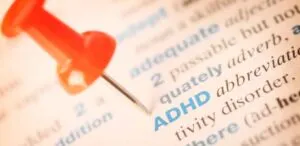Let’s face it, conversations about addiction are never easy, especially when it comes to more sensitive issues like pornography addiction. Yet, hiding from the problem or sweeping it under the rug only makes things worse. As society becomes more digitally connected, access to explicit content has increased, and so have the number of people facing challenges with controlling their consumption. For those battling this addiction, the role of a psychiatrist can be crucial in recovery. Understanding how psychiatrists can help is the first step toward seeking effective treatment.
What is Pornography Addiction?
Before diving into the role of psychiatrists, it’s essential to grasp what porn addiction means. Porn addiction is characterized by its inability to control the consumption of pornography despite unhealthy, negative consequences. This might include spending excessive amounts of time watching porn, neglecting responsibilities, or experiencing relationship issues.

Symptoms include:
- An inability to stop using pornography despite its negative consequences.
- Increased time spent engaging with pornographic content.
- Neglecting personal, professional, or academic responsibilities.
Consequences of Pornography Addiction:
- Relationship issues.
- Mental health problems like anxiety, stress, and depression.
- Erosion of self-esteem and self-worth.
- Preoccupation with sexual thoughts throughout the day.
- Guilt, shame, confusion.
- Sexual dysfunction
The Role of Psychiatrists in Treating Pornography Addiction

Assessment and Diagnosis
The first step a psychiatrist takes is a thorough assessment. This involves discussing the patient’s history, behaviors, and feelings related to porn use. They may ask questions about the frequency of use, the impact on daily life, and any attempts to cut down or stop watching porn. This comprehensive evaluation helps in understanding the severity of the addiction and identifying any co-occurring mental health disorders, such as depression or anxiety, that might be contributing to the addictive behavior.
Developing a Personalized Treatment Plan
Once the assessment and evaluation are complete, the psychiatrist will create a tailored treatment plan. This plan will include medications, a combination of therapies, and lifestyle changes. The goal is to address both the addiction and any underlying mental health issues.
Medication Management
The FDA has not approved any medication specifically for treating porn addiction. However, research into various medications has shown promising results in reducing the symptoms associated with porn addiction. Often, porn addiction and related sexual dysfunctions co-occur with mental health disorders like depression and anxiety. These mental health issues can be treated with antidepressants such as Selective Serotonin Reuptake Inhibitors (SSRIs) or other related drugs.
For individuals with bipolar disorder who also exhibit compulsive sexual behavior, mood stabilizers like valproic acid and lithium have been effective in reducing these symptoms. Additionally, Naltrexone, a drug typically used for opioid addiction, has shown promise in treating porn addiction and other compulsive sexual behaviors. Anti-androgenic medications can also help decrease sexual urges by reducing the levels of male hormones in the body. However, research on anti-androgenic medications is limited, and they have been associated with severe side effects. Moreover, the effects of these medications are not permanent; hormone levels return to normal once the drug is no longer taken.
Specific Therapies and Techniques
- Cognitive Behavioral Therapy (CBT)
CBT is often the frontline treatment for pornography addiction, involving the identification of triggers to understand what prompts the urge to consume porn, cognitive restructuring to change the thought processes associated with these urges, and the use of behavioral techniques to implement healthier coping mechanisms.
- Motivational Interviewing
This technique involves exploring the patient’s motivation and ambivalence towards change, including reflective listening to understand the patient’s viewpoint without judgment and empowering change by helping the patient recognize their own capacity for change.
- Mindfulness-Based Therapies
Mindfulness practices can be extremely beneficial. It includes Mindfulness-Based Stress Reduction (MBSR), Dialectical Behavioral Therapy (DBT), Acceptance and Commitment Therapy (ACT), and Compassion-based practices, like Compassion-Focused Therapy.
- Group Therapy
Group settings provide a sense of community and shared experience. Benefits include shared experiences for learning from others with similar struggles and mutual support for offering and receiving encouragement.

Support groups
Many people get strength from talking to others who have personal experience with the same issue. Support groups are a valuable resource. During the peer meetings, individuals with a shared goal of overcoming porn addiction offer their insights, experiences, and support. The members of the support group help each other by offering nonprofessional assistance. By working together, everyone can achieve long-lasting recovery from their disorders. Research has shown that peer support services positively improve participants’ self-efficacy, personal perspective, and self-perception. In the long run, this support can lead to substantial improvements.
Tips for Managing Pornography Addiction
While professional help is crucial, here are some additional tips that can support the recovery process:
- Set Clear Goals: Establish clear, achievable, and realistic goals for reducing porn use.
- Identify Triggers: Recognize situations, emotions, or environments that trigger the urge to watch porn.
- Develop Healthy Habits: Engage in activities that enhance and promote well-being, such as exercise, hobbies, and socializing with friends.
- Limit Access: Use software or apps to block access to pornographic content on devices.
Novus Beginning Psychiatry: Your Path to Health and Wellness Starts Here!
We understand that navigating the complexities of mental health can feel overwhelming, but you don’t have to face it alone. At Novus Beginning Psychiatry, we’re here to support you every step of the way. Whether you’re seeking therapy, medication, or a combination of both, our compassionate professionals are dedicated to helping you find the path to a happier, healthier life.
Our highly skilled psychiatrists are experienced in a wide range of mental health conditions, including anxiety, depression, bipolar disorder, OCD, PTSD, ADHD, autism, and more. We offer evidence-based therapies that have been proven effective in helping individuals overcome their challenges. From cognitive-behavioral therapy (CBT) to couples/family therapy, we utilize the most up-to-date techniques to empower you on your healing journey.
So, take the first step towards a brighter future. Contact us today to schedule an appointment. Our friendly staff is ready to assist you in finding a convenient time to meet with our dedicated professionals. Call (832)856-4718 and let us help you take charge of your mental well-being.
Medication Management For Psychiatric Wellness
At Novus Beginning Psychiatry, we’re dedicated to helping you unlock the power of effective medication management. Our team of psychiatrists has years of experience and understands the importance of finding the right balance for your mental health journey. We offer personalized and compassionate care, creating medication plans that are tailored to your unique needs. Our understanding of psychopharmacology allows us to provide the most advanced and evidence-based treatments available.
Our goal is to help you by providing the right medications to enhance your therapy outcomes, reduce your symptoms, and improve your overall well-being. We want to be your trusted partner on the path to a brighter future. Please don’t hesitate to contact us at Novus Beginning Psychiatry to experience the transformative effects of our comprehensive medication management approach.
Visit us
Come and visit us at one of our locations in person, or meet us via telepsychiatry/online!
We’re here to help in Texas, and we’re ready to meet you in person. If you’re unable to make it in person, don’t worry, we’re also available online in Texas, so you can meet us easily from the comfort of your own home. Whether you prefer to see us face-to-face or connect with us online, we’re here to assist you every step of the way.
Address in Sugar Land
120 Eldridge Rd Suite D, Sugar Land, TX 77478
Address in Katy
23410 Grand Reserve Drive, Ste. 401 & 402 Katy, Texas 77494



